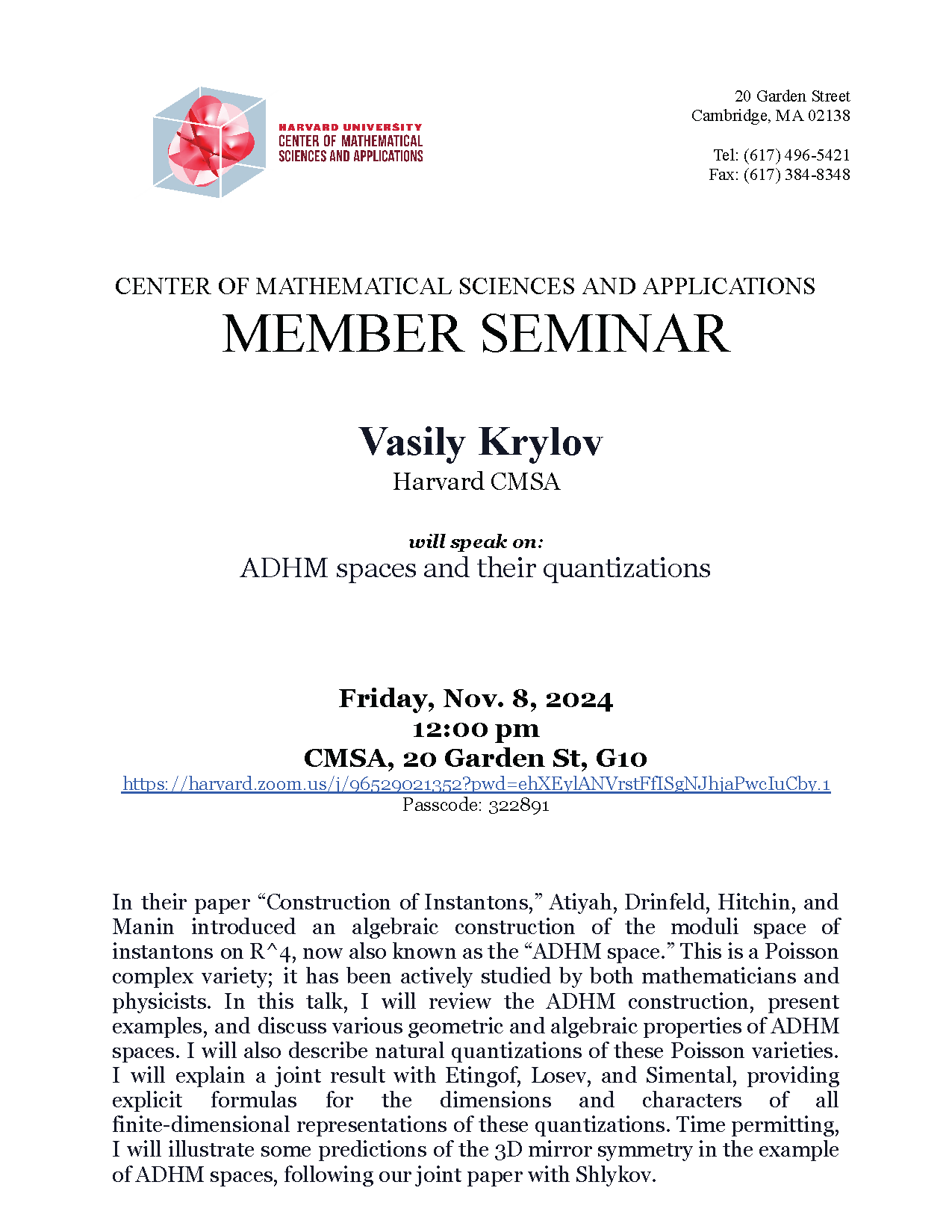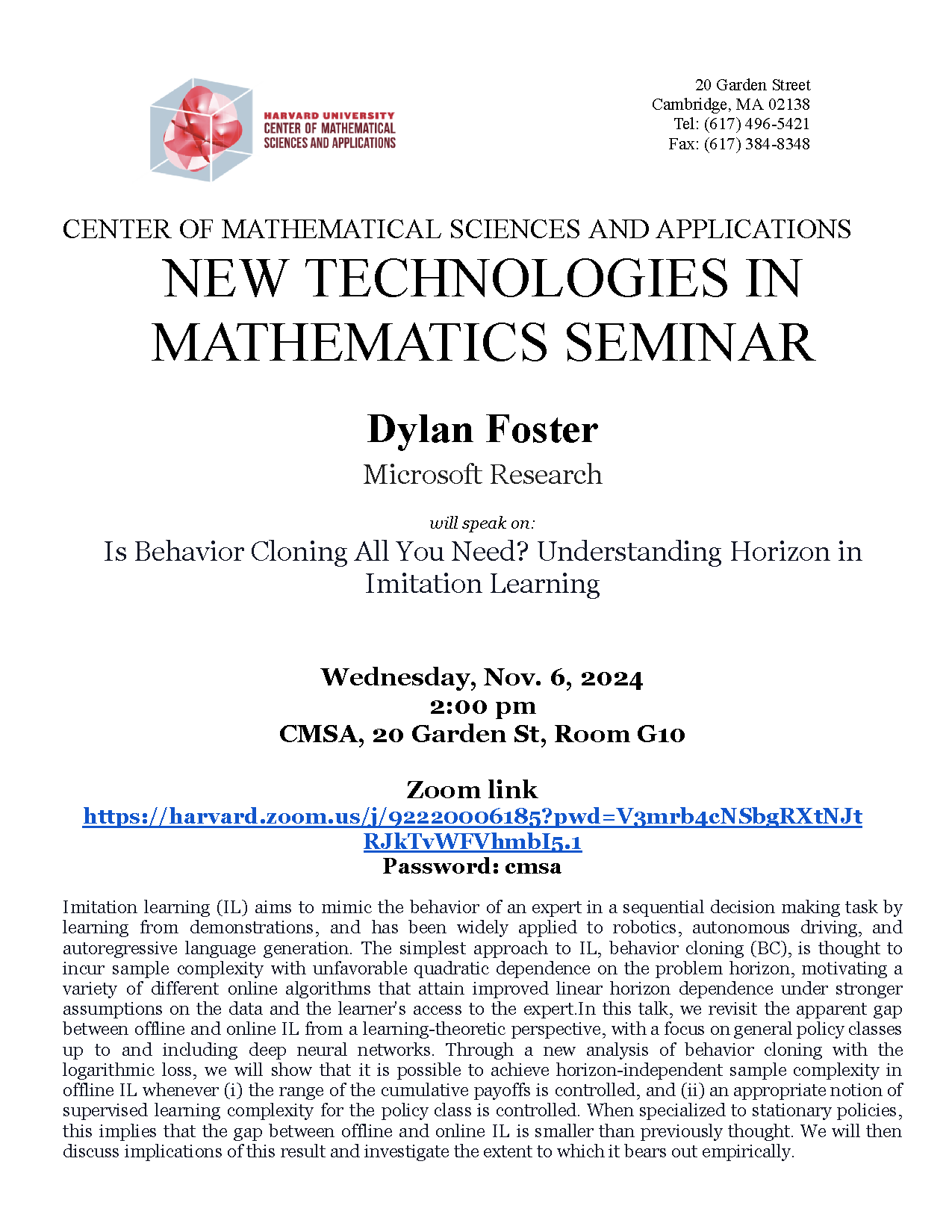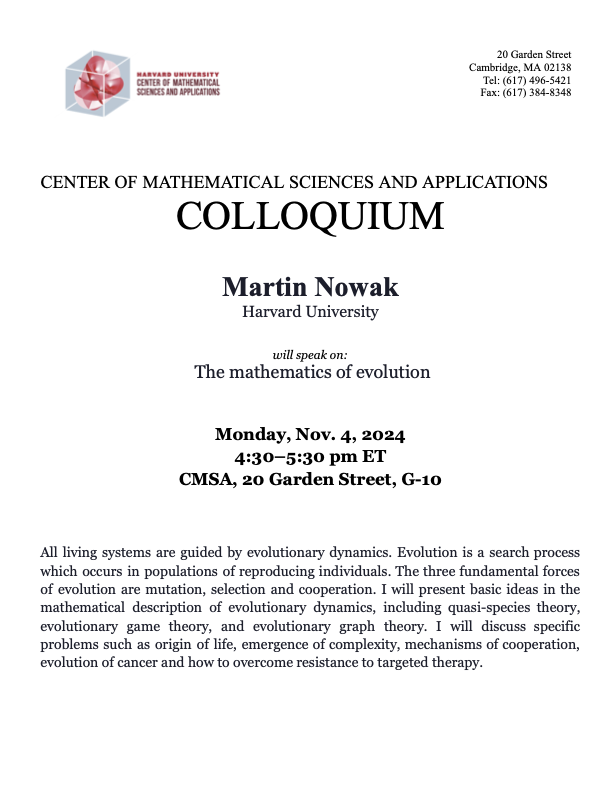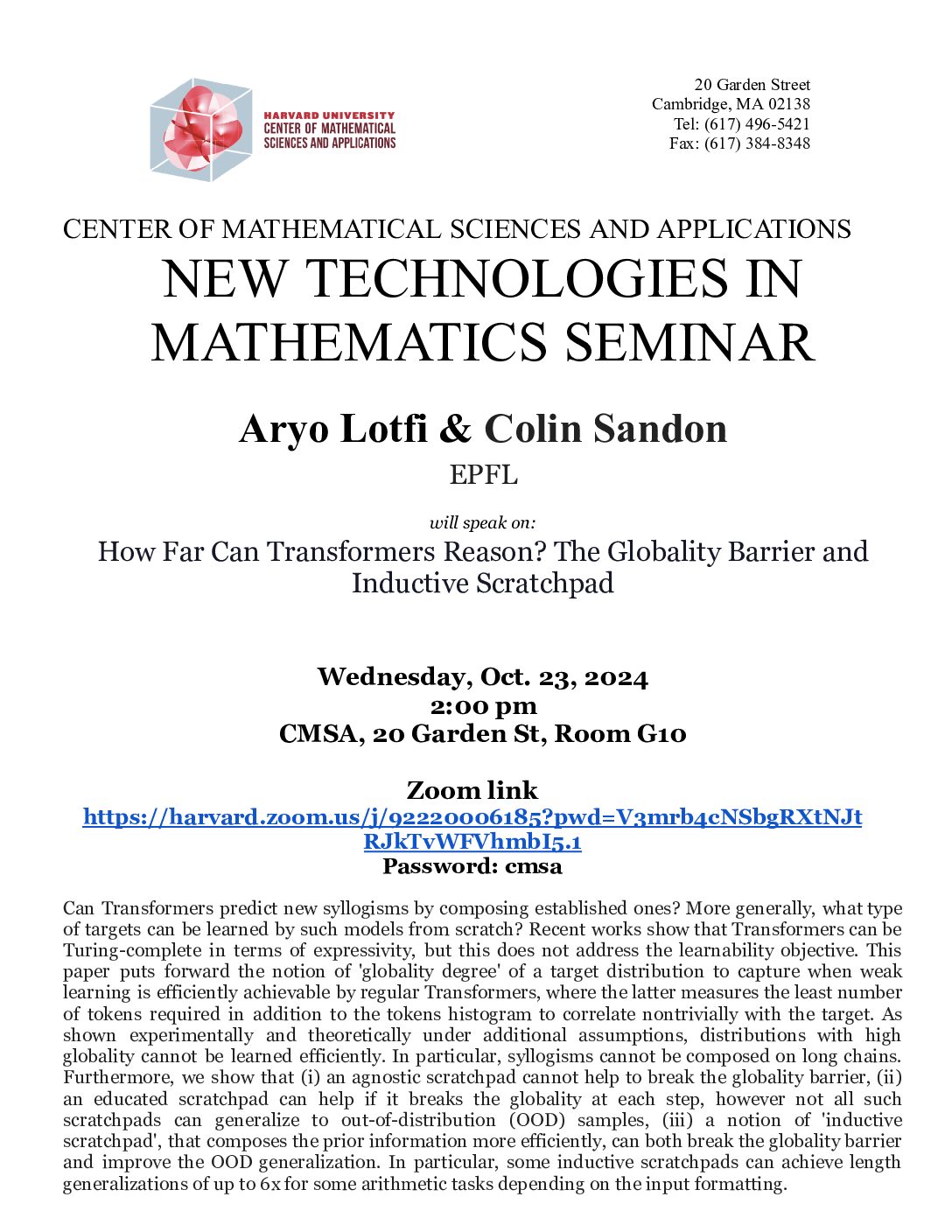
pp Waves: Quasinormal Modes & Hidden Symmetries of Black Holes
CMSA Room G10 CMSA, 20 Garden Street, Cambridge, MA, United StatesGeneral Relativity Seminar Speaker: Ahmed Seta, Harvard University Title: pp Waves: Quasinormal Modes & Hidden Symmetries of Black Holes Abstract: The spectrum of quasinormal modes of 4D flat space black holes is not analytically tractable, but there are two asymptotic limits where the QNM spectrum is under control: weak damping and strong damping. In this talk, I […]









